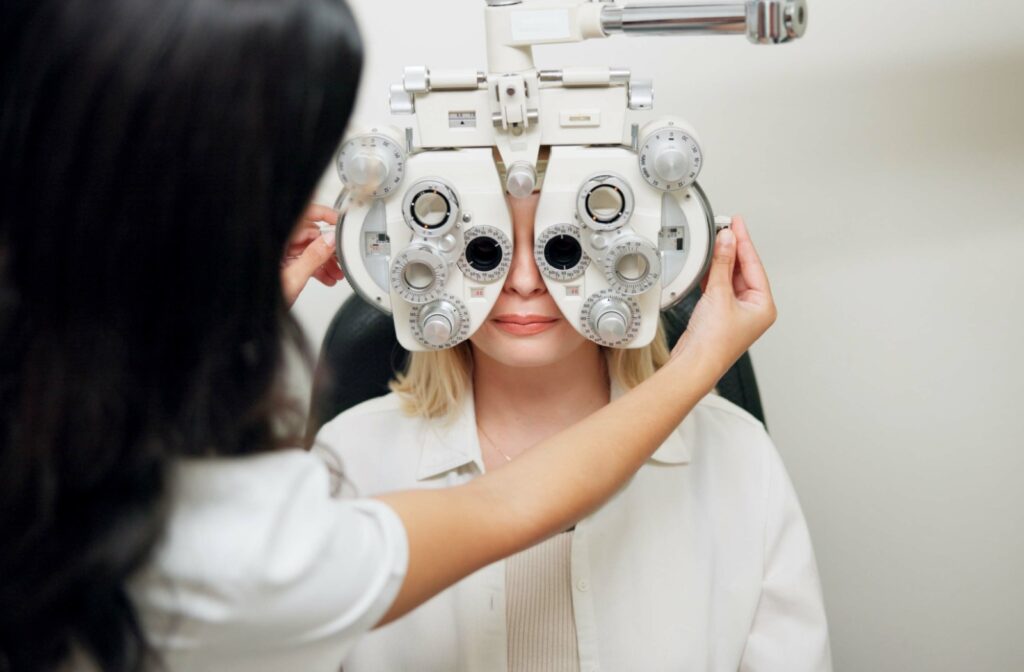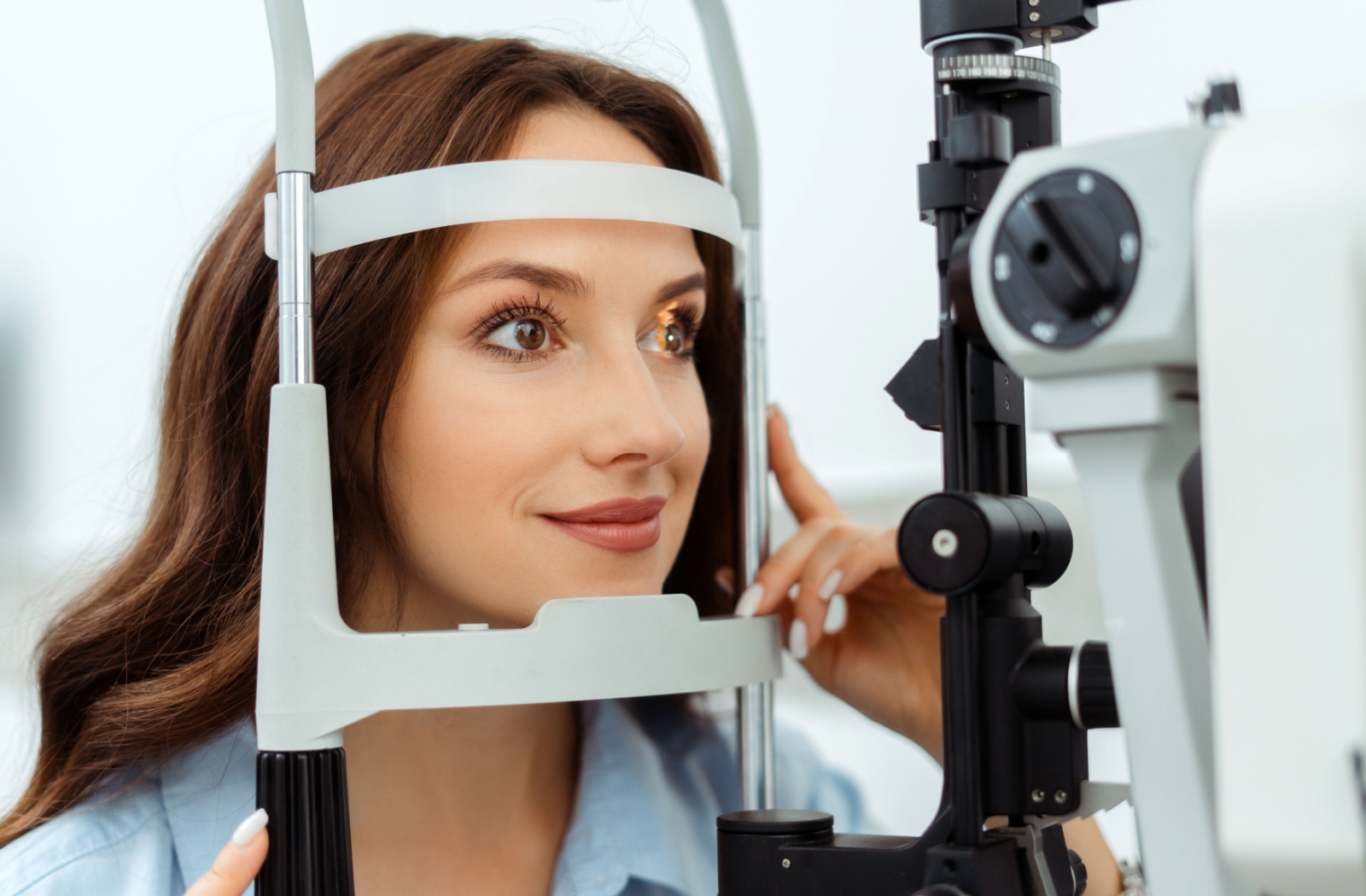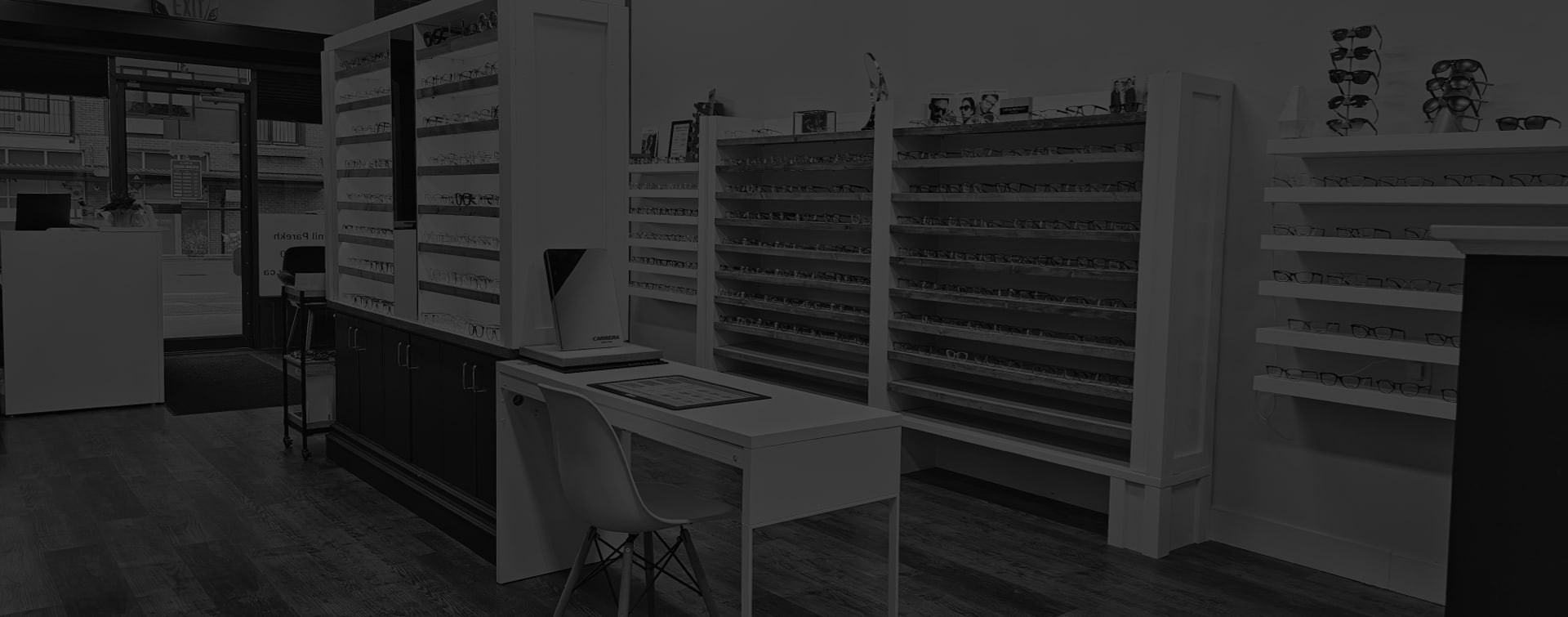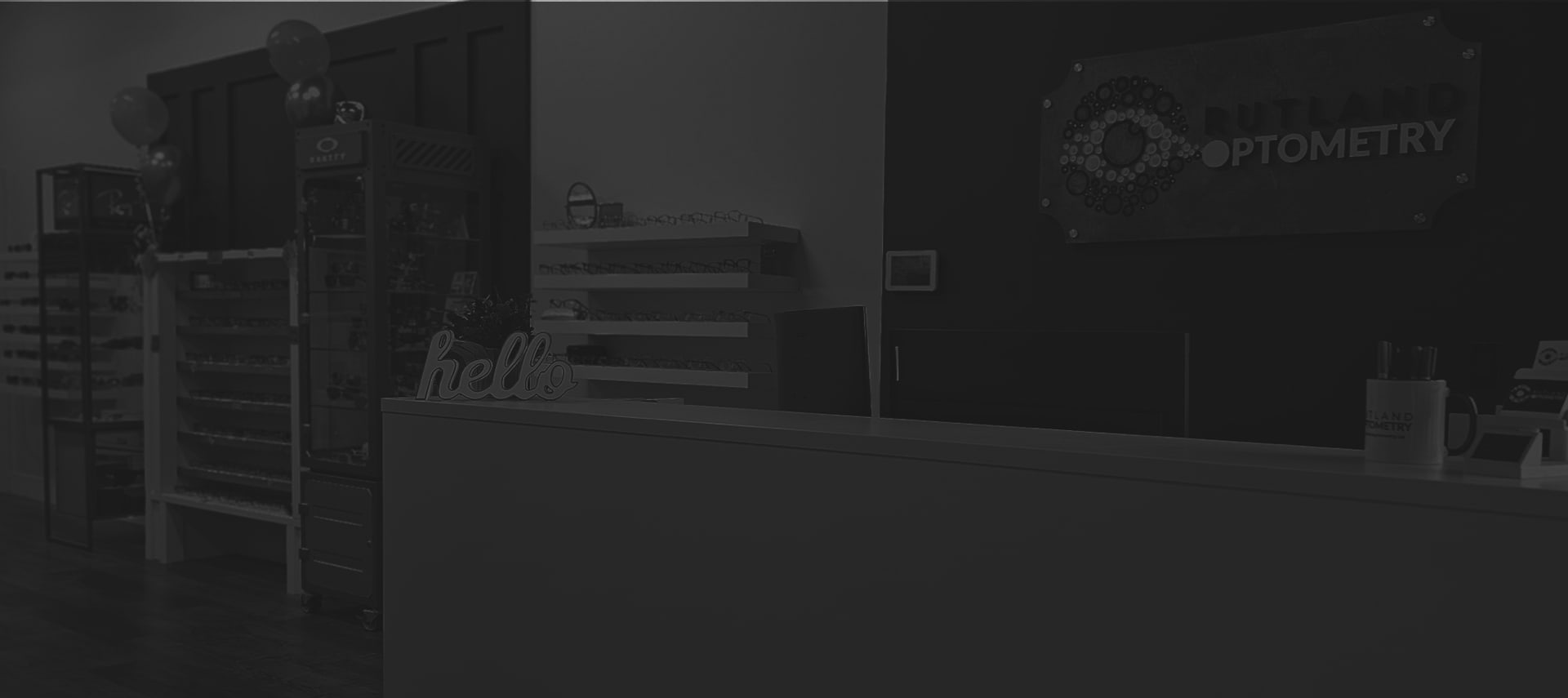When it comes to protecting your sight, prevention is key. So, how often do you need an eye exam? Most people should have a comprehensive eye exam every 1 to 2 years, but the right schedule for you depends on your age, health, family history, and any vision changes you’re experiencing.
While many people only visit the optometrist when something feels off, regular eye exams play a crucial role in detecting and preventing serious eye conditions before they impact your vision. Whether you wear glasses, contact lenses, or have perfect sight, routine eye care helps ensure your eyes can stay healthy long-term.
Why Eye Exams Matter
Your eyes are constantly at work, helping you navigate the world—but they’re also vulnerable to a range of conditions that can develop without obvious symptoms. In fact, 1 in 7 Canadians lives with a vision-threatening eye disease. Many of these, like glaucoma or age-related macular degeneration (AMD), don’t present early warning signs. Regular eye exams allow your optometrist to detect issues early, often before you even notice a problem.
Your eye health is also closely tied to your overall health. Conditions like diabetes and high blood pressure can show up first in the eyes, making routine eye exams an important part of your broader wellness plan.
How Often Should You Get an Eye Exam?
While each person’s needs are unique, the Canadian Association of Optometrists offers helpful general guidelines:
Infants & Children (0–19 years)
- Before age 5: At least 2 eye exams to assess development
- Age 6 and up: Annually
Children’s eyes grow and change rapidly, making early detection essential. Issues like lazy eye or strabismus are easier to treat when caught early.
Adults (20–64 years)
- Every 2 years, or more frequently based on individual needs
Factors like digital eye strain, dry eyes, headaches, or a family history of eye conditions may require more regular monitoring.
Seniors (65+ years)
- Every year
As we age, the risk for cataracts, glaucoma, and AMD increases. Annual exams are critical for early intervention. Your optometrist may recommend a different schedule based on your vision, health conditions (like diabetes), or risk factors. Following their advice can help you stay ahead of potential issues.
Benefits of Routine Eye Exams
Regular exams go beyond simply checking your prescription. They’re an important tool for maintaining long-term vision and overall wellness. Here’s what they can do:
- Detect silent eye diseases early
- Monitor eye pressure for glaucoma
- Check the health of your retinas and optic nerve
- Identify systemic conditions like diabetes or hypertension
- Keep your prescription current
- Help reduce eye strain and visual fatigue
For children, routine eye care can support academic success by catching vision issues that may impact learning and reading.
What Happens During an Eye Exam?
If it’s been a while since your last visit, you might wonder what to expect. A comprehensive eye exam includes more than just reading letters on a chart. Your appointment may involve:
- Review of medical and vision history
- Visual acuity test to assess how clearly you see
- Refraction assessment to determine your prescription
- Eye movement and muscle testing
- Pupil response checks
- Slit-lamp exam to examine the front structures of the eye
- Retinal and optic nerve evaluation (often with dilation)
- Eye pressure test to screen for glaucoma
Your optometrist will explain each step and discuss any findings or recommendations with you at the end of your exam.

Why Some People Skip Eye Exams (& Why You Shouldn’t)
It’s easy to put off a visit to the optometrist, especially if your vision seems fine. But skipping regular exams can allow silent conditions to progress without detection. Some of the common reasons people delay include:
- Busy schedules
- No noticeable symptoms
- Misunderstanding the importance of eye exams
- Financial concerns
If cost is a barrier, talk to your eye care provider. Many provinces offer children’s and seniors’ exams through provincial health coverage, and there may be community programs or insurance plans to support you.
Tips for Staying on Track
- Set calendar reminders for your next eye exam
- Make exams part of your family’s back-to-school or annual health check routine
- Talk to your optometrist about the best exam frequency for you
- Don’t wait for symptoms—be proactive about your vision
Good eye health supports your quality of life, independence, and ability to enjoy everyday moments. Taking care of your vision is an investment in your overall well-being.
Prioritize Your Vision with Professional Care
Your vision matters, and so does the quality of care you receive. At Rutland Optometry, we take a community-focused approach to eye care. Our experienced team offers comprehensive eye exams for all ages, using modern diagnostic tools and personalized recommendations to support your lifelong eye health. Whether you’re due for your next checkup, have concerns about your vision, or are simply looking for a new eye care provider, we’re here to help. Book your eye exam today with Rutland Optometry and give your eyes the care they deserve.
















